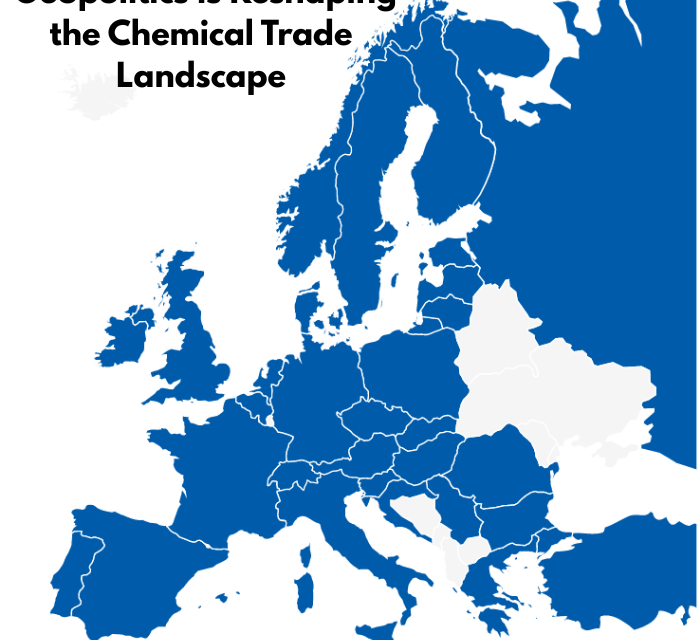Geopolitical dynamics are significantly altering the global chemical trade landscape, creating both challenges and opportunities for industry players. Rising tensions between major economies, shifting trade policies, and the push for regional self-reliance are redefining supply chains and market priorities. The ongoing U.S.-China trade tensions, coupled with the Russia-Ukraine conflict, have disrupted global raw material supply and chemical trade routes, compelling nations and companies to rethink sourcing strategies and diversify dependencies.
The “China Plus One” strategy, adopted by many global companies, is one of the most significant shifts. Companies are reducing reliance on China as a primary manufacturing hub and exploring alternative suppliers in countries like India, Vietnam, and Indonesia. This transition is reshaping trade flows, with India emerging as a critical player in the specialty and bulk chemicals segment. Additionally, geopolitical blocs, such as the European Union, are focusing on developing sustainable and independent chemical production capacities to reduce reliance on imports.
Sanctions and trade restrictions have further impacted the flow of raw materials and intermediates, particularly in regions dependent on petrochemical exports from Russia and the Middle East. These disruptions have increased production costs and led to supply shortages in various industries. Meanwhile, the rise of economic protectionism has seen countries implementing tariffs and export bans, further complicating the global trade environment.
Geopolitics is also driving investment in regional supply chains and trade alliances. For example, the Indo-Pacific Economic Framework and similar agreements are fostering collaboration and opening new trade channels. Simultaneously, companies are accelerating the adoption of digital and AI-driven tools to predict market trends, manage risks, and optimize logistics in an unpredictable trade environment.
The chemical industry’s future in this shifting geopolitical landscape hinges on resilience and adaptability. Companies are investing in localized manufacturing, sustainable raw material sourcing, and diversified supply chains to mitigate risks. While challenges persist, geopolitical changes are also creating opportunities for emerging markets to gain prominence and for the industry to innovate in response to evolving global demands. As trade continues to adapt, the chemical industry is poised to remain a vital enabler of industrial growth and economic development.










